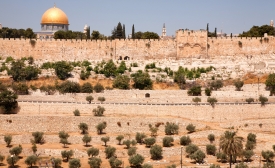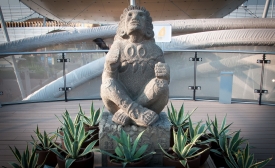palestine
The past two weeks have seen the onset of a new cycle of violence between Israel and Palestine. To date, this cycle has claimed the lives of tens of Palestinians and Israelis. As the violence wages on, both Israel and Palestine have turned to social media in order to offer their interpretation of events. From a research perspective, this use of social media offers a glimpse into how nations use digital diplomacy in times of crisis.

An analysis of opposing social media narratives.
Unlike in previous uprisings, more and more women are participating in protests against the Israeli occupation. But the fighting has also taken its toll on them.
As Palestinian veterans and analysts grapple with the question of whether current events bear the hallmarks of a new intifada, Al Jazeera reached out to a number of Palestinians under the age of 30 throughout the region.
Israel closed the channel's studio in the Israeli Arab town of Nazareth within days of its June launch because it is funded by non-Israelis — the Palestinian self-rule government in the West Bank. [...] Hot-button issues like gender roles and identity conflicts are raised spontaneously by guests, said Fadi Zgairy, the evening show's host.
The Israeli government believes it is locked in an epic struggle to save Israel from the growing movement calling for an international boycott. Benjamin Netanyahu warns that Israel must “rebrand” itself to avoid pariah status. Ordinary Israelis are therefore being conscripted into an army of spin doctors in a campaign termed “hasbara”.
The Gaza-ruling Palestinian terrorist group Hamas has launched a new English-language website in an attempt to shore up its public diplomacy efforts. “We have launched our English website because we believe that communication matters,” the jihadi group said on its Twitter page. “And because we value your opinions and cherish diversity, we have also added a contact button,” the terror entity wrote in another tweet, adding a smiley face emoticon at the end of the message.

Part two of Nicholas J. Cull's look at religion at the 2015 Milan Expo.







